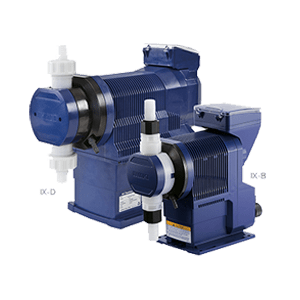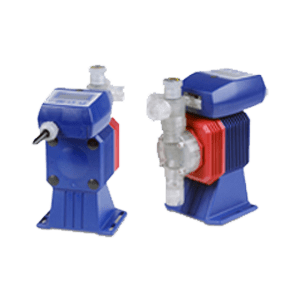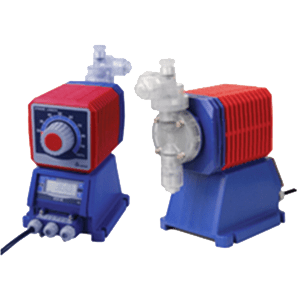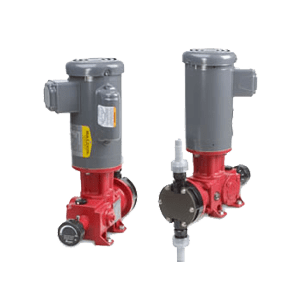Methanol, an alcohol known by its formula CH3OH serves a wide range of purposes, in different industries. It plays a role in making formaldehyde, acetic acid and various other chemicals. Additionally, it finds use as a solvent, antifreeze, fuel and in the production of biodiesel. However, managing methanol demands tools due to its physical and chemical characteristics like toxicity, flammability and corrosiveness.
Understanding Methanol
Methanol pumps are tools created to transfer methanol effectively. These pumps are made with materials that can withstand the properties of methanol and are designed to prevent leaks and spills which could pose risks.
The design and selection of methanol pumps depend on various factors, including the volume of methanol to be transferred, the required flow rate, the pressure conditions, and the specific requirements of the application. Proper selection and maintenance of methanol pumps are crucial to ensure operational efficiency and safety.
Challenges in Methanol Handling
Handling methanol presents several challenges, primarily due to its chemical properties. Methanol is toxic, and exposure can cause serious health effects, including blindness and death if ingested, inhaled, or absorbed through the skin. Therefore, methanol handling requires strict safety measures to protect workers and the environment.
Flammability: Methanol has a low flash point, meaning it can ignite at relatively low temperatures, creating a risk of fire or explosion if not handled correctly. Ensuring proper ventilation, using flame-proof equipment, and maintaining strict control over potential ignition sources are essential when handling methanol.
Corrosiveness: Methanol can corrode certain materials, leading to equipment damage and potential leaks. This necessitates the use of methanol-compatible materials in pump construction, such as stainless steel or specific polymers that can withstand methanol’s corrosive nature.
Environmental considerations: Spills and leaks can contaminate water sources and soil, requiring robust containment and spill response measures. Adequate training for personnel, appropriate personal protective equipment (PPE), and adherence to regulatory standards are also critical in mitigating these challenges.
Introducing Walchem’s Methanol Pumps
Walchem, a leading manufacturer of innovative fluid handling equipment, offers a specialized methanol pumps designed to address the challenges associated with methanol handling. Walchem methanol pump is engineered to provide reliable, safe, and efficient transfer of methanol in various industrial settings.
Walchem methanol pumps stand out due to its robust construction, advanced features, and compliance with stringent safety and environmental standards. It is designed to handle the corrosive nature of methanol, prevent leaks, and operate efficiently under various conditions. Whether for small-scale laboratory use or large industrial applications, Walchem’s methanol pumps are built to deliver optimal performance.
Key Features of Walchem’s Methanol Pumps
Corrosion Resistance: Walchem methanol pumps are constructed from materials that are highly resistant to methanol’s corrosive properties. This includes the use of stainless steel, fluoropolymers, and other compatible materials that ensure longevity and reliability.
Leak Prevention: The pumps are designed with advanced sealing technologies to prevent leaks, which is crucial for both safety and environmental protection. Robust gasket materials and leak detection on some models are used to ensure that methanol remains contained within the system.
Safety Features: Walchem methanol pumps incorporate several safety features, such as explosion-proof motors, automatic shut-off mechanisms, and integrated pressure relief valves in some models. These features help prevent accidents and ensure safe operation under various conditions.
Efficiency and Performance: The pumps are designed for high efficiency, providing consistent flow rates and reliable performance even under demanding conditions. They are capable of handling both low and high-pressure applications, making it versatile for different industrial needs.
Ease of Maintenance: Walchem methanol pumps are designed for easy maintenance, with accessible components and clear guidelines for servicing. This reduces downtime and ensures that the pump remains in optimal working condition with minimal effort.
Customization Options: Recognizing that different applications have specific requirements, Walchem offers customization options for their methanol pumps. This includes modifications to pump materials, capacities, and additional features to meet unique operational needs.
Applications of Methanol Pumps
Walchem methanol pumps find applications across a wide range of industries due to their versatility and robust design. Some of the key applications include:
Chemical Manufacturing: Methanol is a critical raw material in the production of various chemicals, including formaldehyde, acetic acid, and methyl tert-butyl ether (MTBE). Walchem methanol pumps ensures safe and efficient transfer of methanol in these manufacturing processes, contributing to high product quality and operational safety.
Pharmaceutical Industry: In the pharmaceutical industry, methanol is used as a solvent and reagent in the synthesis of active pharmaceutical ingredients (APIs). The precision and reliability of Walchem methanol pumps are essential for maintaining the purity and consistency of pharmaceutical products.
Biofuel Production: Methanol is a key component in the production of biodiesel through transesterification. Walchem methanol pumps facilitate the accurate dosing and transfer of methanol, ensuring efficient and safe biodiesel production.
Laboratory and Research: In research and development settings, methanol is used in various analytical and synthetic applications. The compact and reliable design of Walchem methanol pumps makes them ideal for laboratory environments, where precise control and safety are paramount.
Water Treatment: Methanol is used in certain water treatment processes, such as denitrification in wastewater treatment. Walchem methanol pumps ensure accurate and controlled delivery of methanol, enhancing the effectiveness of these treatment processes.
Automotive Industry: Methanol is used as a fuel and fuel additive in the automotive industry. Walchem methanol pumps support the safe handling and transfer of methanol in fuel production and testing facilities, contributing to the development of cleaner and more efficient automotive technologies.
Conclusion
In conclusion, the importance of selecting the right methanol pumps cannot be overstated. With its focus on quality, safety, and performance, Walchem’s methanol pumps represents a significant advancement in the field of fluid handling, providing industries with a reliable tool to meet the challenges of methanol handling and achieve their operational goals.






